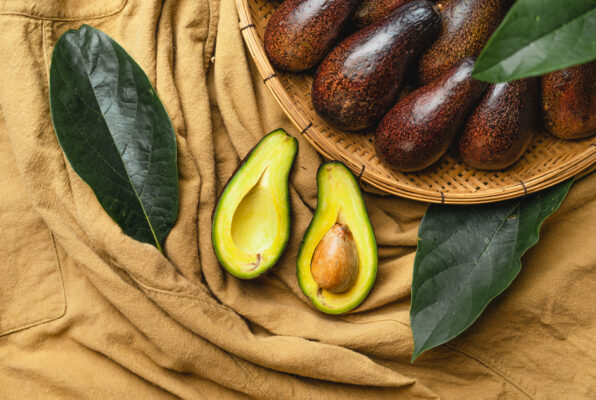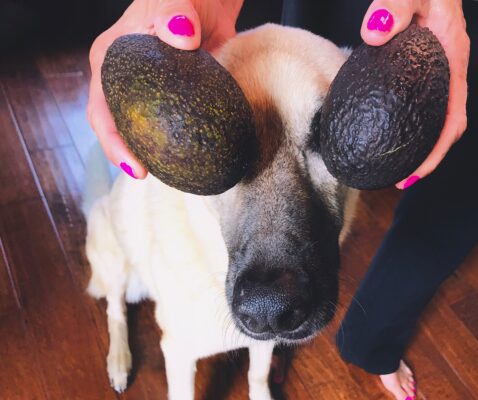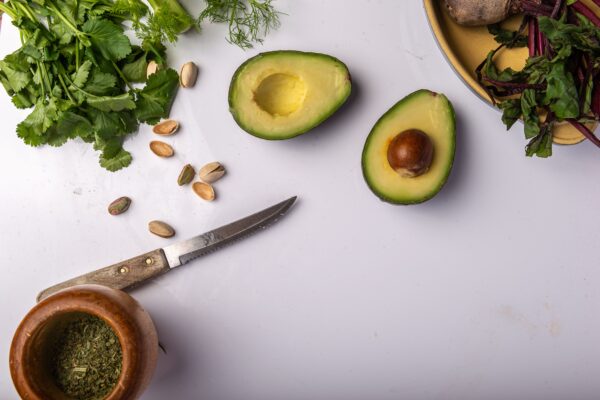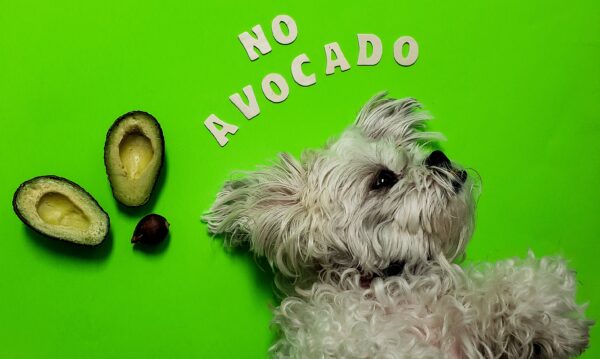p { font-size: 18px; line-height: 1.6; } table { width: 100%; border-collapse: collapse; margin: 20px 0; } table, th, td { border: 1px solid #2E8B57; } caption { font-weight: bold; margin-bottom: 10px; font-size: 20px; } th, td { padding: 12px; text-align: left; } h2, h3 { color: #2E8B57; } ul { margin-left: 20px; } a { color: #2E8B57; }
As a responsible dog owner, you may be curious about which human foods are safe to share with your furry friend. Avocado is a nutritious fruit enjoyed by many, but is it appropriate for dogs? This comprehensive guide delves into the potential benefits and risks of feeding avocado to dogs. We’ll provide detailed insights backed by veterinary advice, scientific studies, and practical examples to help you make an informed decision. Read on to discover everything you need to know about dogs and avocado.Can Dogs Eat Avocado?
Table of Contents
- 1. Nutritional Value of Avocado
- 2. Can Dogs Safely Eat Avocado?
- 3. Potential Health Benefits of Avocado for Dogs
- 4. Potential Risks and Precautions
- 5. How to Properly Offer Avocado to Your Dog
- 6. Appropriate Serving Sizes
- 7. Alternative Fruits and Vegetables Safe for Dogs
- 8. Case Studies and Expert Opinions
- 9. Frequently Asked Questions
- 10. Conclusion
1. Nutritional Value of Avocado
1.1 Overview of Avocado Nutrition
Avocados are known for their rich nutrient profile and are often touted as a superfood for humans. They contain:
- Healthy Fats: High in monounsaturated fats, particularly oleic acid, which is beneficial for heart health.
- Vitamins: Rich in vitamins K, C, E, and several B vitamins (B5, B6, and folate).
- Minerals: Contains potassium, magnesium, and small amounts of iron and zinc.
- Fiber: A good source of dietary fiber, aiding in digestion.
- Antioxidants: Contains carotenoids like lutein and zeaxanthin, which support eye health.
1.2 Nutritional Table

Below is the nutritional breakdown of 100 grams of raw avocado (USDA, 2021):
| Nutrient | Amount |
|---|---|
| Calories | 160 kcal |
| Protein | 2 g |
| Total Fat | 14.7 g |
| Carbohydrates | 8.5 g |
| Dietary Fiber | 6.7 g |
| Sugars | 0.7 g |
| Potassium | 485 mg |
| Vitamin C | 10 mg |
| Vitamin K | 21 µg |
| Folate | 81 µg |
| Magnesium | 29 mg |
1.3 Comparison with Other Fruits
Compared to other fruits, avocados are higher in fat and calories but lower in sugar. This unique nutritional profile makes them beneficial for certain dietary needs in humans. However, for dogs, the high-fat content and potential toxicity pose concerns.
2. Can Dogs Safely Eat Avocado?

2.1 The Short Answer
While small amounts of the avocado flesh may not be harmful to dogs, avocados contain substances that can be toxic to them, and caution is advised.
2.2 Understanding Persin
Avocado contains a fungicidal toxin called persin, which is primarily concentrated in the leaves, skin, bark, and pit of the avocado tree and fruit. Persin can be harmful to many animals, including birds, rabbits, horses, and goats. Dogs are more resistant to persin compared to these species, but ingestion of significant amounts can still lead to health issues.
2.3 Veterinary Consensus
According to the ASPCA and the American Veterinary Medical Association (AVMA), it’s best to avoid feeding avocados to dogs due to the potential risks associated with persin toxicity and other health concerns.
2.4 Legal Considerations in Pet Food
The use of avocado in pet food is regulated. The Association of American Feed Control Officials (AAFCO) allows the use of avocado meal and oil in pet foods, provided it doesn’t contain harmful levels of persin. Pet food manufacturers often use avocado derivatives processed to remove persin.
3. Potential Health Benefits of Avocado for Dogs

3.1 Healthy Fats
The monounsaturated fats in avocado can support skin and coat health in dogs. Healthy fats are essential for nutrient absorption, energy, and maintaining cell structure. Some commercial dog foods include processed avocado oil for these benefits.
3.2 Vitamins and Minerals
- Vitamin E: An antioxidant that supports immune function, reduces inflammation, and promotes skin health.
- Potassium: Important for muscle function, nerve signals, and maintaining fluid balance.
- Folate: Supports cell division and growth, crucial for pregnant dogs and fetal development.
- Magnesium: Involved in over 300 enzymatic reactions, including energy production and protein synthesis.
3.3 Fiber Content
Dietary fiber aids in digestion, promotes healthy bowel movements, and can help regulate blood sugar levels. Fiber can also contribute to a feeling of fullness, which may aid in weight management.
3.4 Antioxidants
Carotenoids like lutein and zeaxanthin support eye health by protecting against oxidative damage. These antioxidants may help reduce the risk of cataracts and macular degeneration in aging dogs.
3.5 Omega Fatty Acids
While avocados are not a significant source of omega-3 fatty acids, they contain omega-9 fatty acids (oleic acid), which have anti-inflammatory properties and support heart health.
3.6 Case Study: Potential Benefits
Luna, a 7-year-old Beagle with a dull coat and dry skin, was switched to a commercial dog food containing avocado oil as an ingredient. Over several weeks, her coat became shinier, and her skin condition improved. This suggests that processed avocado derivatives in pet food can provide benefits when appropriately formulated.
4. Potential Risks and Precautions

4.1 Persin Toxicity
While dogs are less sensitive to persin than other animals, ingestion of large amounts can lead to symptoms:
- Gastrointestinal Upset: Vomiting and diarrhea due to irritation of the digestive tract.
- Abdominal Pain: Discomfort caused by inflammation of the stomach lining.
- Myocardial Damage: In rare cases, persin can affect the heart, leading to fluid accumulation around the heart (pericardial effusion) and respiratory distress.
A study published in the Journal of Veterinary Diagnostic Investigation reported cases where dogs developed myocardial damage after consuming large amounts of avocado (JVDI, 2011).
4.2 High Fat Content
Avocados are high in fat, which can lead to:
- Pancreatitis: Inflammation of the pancreas, causing severe abdominal pain, vomiting, and lethargy. High-fat foods can trigger pancreatitis in susceptible dogs.
- Obesity: Excessive calorie intake can contribute to weight gain and associated health issues like diabetes and joint problems.
A study in the Journal of Nutrition highlighted that dietary fat is a significant factor in the development of pancreatitis in dogs (JN, 2004).
4.3 Choking Hazard and Obstruction
The avocado pit poses a significant risk:
- Choking Hazard: The pit can lodge in the throat, blocking the airway.
- Intestinal Obstruction: If swallowed, the pit can block the intestines, requiring surgical removal. This is more common in medium to large breed dogs that can ingest larger objects.
Obstructions can be life-threatening and require immediate veterinary intervention.
4.4 Skin and Leaves
The skin and leaves contain higher concentrations of persin and should be avoided entirely. Dogs that have access to avocado trees may ingest fallen fruit, leaves, or bark, increasing the risk of toxicity.
4.5 Allergic Reactions
Some dogs may have food sensitivities or allergies to avocados, leading to symptoms like itching, skin rashes, hives, or gastrointestinal upset. Food allergies account for about 10% of all allergies seen in dogs (JAVMA, 2012).
4.6 Expert Opinion
Dr. Justine Lee, a board-certified veterinary specialist, states, “While small amounts of avocado flesh are unlikely to be toxic to dogs, the risks often outweigh the benefits. It’s safer to choose other fruits and vegetables that are known to be safe for dogs.”
5. How to Properly Offer Avocado to Your Dog
5.1 Preparation Steps
If you decide to offer avocado to your dog despite the risks, follow these precautions:
- Select a Ripe Avocado: Ensure it’s fresh, ripe, and free from mold or bruises.
- Remove the Pit and Skin: Discard them safely to prevent accidental ingestion. Be cautious when disposing of them, especially if your dog can access trash bins.
- Use Only the Flesh: Offer a small amount of the green, soft flesh. Avoid any brown or spoiled areas.
- Serve Plain: Do not add any seasonings, salt, or additives that could be harmful to your dog.
- Introduce Gradually: Start with a tiny piece to monitor for any adverse reactions such as vomiting, diarrhea, or allergic symptoms.
5.2 Serving Suggestions
- As a Tiny Treat: Offer a small piece as an occasional treat during training sessions.
- Mixed with Food: Mash a small amount and mix with their regular food, but only if your dog does not have any history of pancreatitis or weight issues.
5.3 Important Considerations
Due to the potential risks, many veterinarians advise against feeding avocado to dogs. Always consult your veterinarian before introducing new foods to your dog’s diet, especially if your dog has existing health conditions.
5.4 Storage and Safety
Ensure that avocados are stored out of your dog’s reach to prevent accidental ingestion. Educate family members and guests about the risks associated with feeding avocados to dogs.
6. Appropriate Serving Sizes
6.1 Moderation is Crucial
If you choose to give your dog avocado, limit the amount to minimize risks:
- Small Dogs (up to 20 lbs): A tiny piece (less than 1 teaspoon).
- Medium Dogs (21-50 lbs): Up to 1 teaspoon.
- Large Dogs (over 50 lbs): Up to 1 tablespoon.
6.2 Calculating Caloric Impact
Avocado is calorie-dense due to its fat content. For example, 1 tablespoon (approximately 15 grams) of avocado contains about 24 calories. Considering that treats should not exceed 10% of your dog’s daily caloric intake, it’s important to adjust their meals accordingly.
6.3 Frequency
Due to the risks, avocado should not be a regular part of your dog’s diet. If given at all, it should be on rare occasions, perhaps once every few weeks, and in very small quantities.
6.4 Monitoring Your Dog
After offering avocado, observe your dog for any signs of digestive upset or allergic reactions. If any symptoms occur, discontinue immediately and consult your veterinarian.
7. Alternative Fruits and Vegetables Safe for Dogs
7.1 Safe Options
Consider these healthy and safe alternatives that provide nutritional benefits without the risks associated with avocado:
- Blueberries: Rich in antioxidants, vitamin C, and fiber. Great for immune support.
- Apples: Remove seeds and core; high in fiber and vitamins A and C. Promote dental health by cleaning teeth as they chew.
- Carrots: Low in calories, high in fiber and beta-carotene. Good for dental health and eyesight.
- Green Beans: Low in calories and high in fiber and vitamins. Can be given raw or cooked without seasoning.
- Sweet Potatoes: Cooked and unseasoned; high in vitamins A, B6, and C, as well as fiber. Supports digestive health.
- Bananas: In moderation; high in potassium, vitamins, and fiber. Good for heart and muscle function.
- Watermelon: Seedless and rindless; hydrating and rich in vitamins A and C.
- Pumpkin: Cooked and unseasoned; excellent for digestive health due to high fiber content.
7.2 Fruits and Vegetables to Avoid
Some produce is toxic to dogs and should be avoided entirely:
- Grapes and Raisins: Can cause kidney failure; even small amounts can be toxic.
- Onions and Garlic: Can damage red blood cells, leading to anemia.
- Cherries: Pits contain cyanide; risk of obstruction and poisoning.
- Tomatoes: Green parts contain solanine, which is toxic in large amounts. Ripe tomatoes are less risky but should be given cautiously.
- Mushrooms: Wild mushrooms can be highly toxic. Stick to store-bought varieties and consult your vet.
7.3 Case Study: Healthy Alternatives
Max, a 4-year-old Labrador Retriever, was overweight and had digestive issues. His owner started incorporating green beans and carrots into his diet as treats instead of high-calorie commercial snacks. Over several months, Max lost weight, his energy levels increased, and his digestive health improved significantly.
7.4 Nutritional Comparison Table
| Food Item | Calories | Fiber (g) | Vitamin C (mg) | Vitamin A (IU) |
|---|---|---|---|---|
| Blueberries | 57 | 2.4 | 9.7 | 54 |
| Carrots | 41 | 2.8 | 5.9 | 16,706 |
| Sweet Potatoes | 86 | 3.0 | 2.4 | 14,187 |
| Bananas | 89 | 2.6 | 8.7 | 64 |
| Green Beans | 31 | 3.4 | 12.2 | 690 |
8. Case Studies and Expert Opinions
8.1 Veterinary Reports on Avocado Toxicity
A report published in the Journal of the American Veterinary Medical Association documented cases where dogs experienced vomiting and diarrhea after consuming significant amounts of avocado (JAVMA, 2011). In one case, a dog developed pancreatitis after ingesting a large quantity of avocado pulp and required hospitalization.
8.2 Expert Opinion
Dr. Tina Wismer, Medical Director of the ASPCA Animal Poison Control Center, states, “While avocado ingestion in dogs is unlikely to be fatal, it can cause stomach upset, and the pit poses a serious choking hazard. It’s best to avoid feeding avocados to your pets.”
8.3 Real-Life Example: Avocado Ingestion
Bella, a 3-year-old Golden Retriever, ate an entire avocado, including the pit, after grabbing it from the kitchen counter. She began vomiting and was lethargic. Her owner took her to the veterinarian, where X-rays revealed an intestinal blockage caused by the pit. Bella required emergency surgery to remove the pit and spent several days recovering in the hospital. The total cost of treatment exceeded $3,000, highlighting the potential financial burden of such incidents.
8.4 Study on Dogs’ Resistance to Persin
A study published in the Veterinary and Human Toxicology journal indicated that while dogs are more resistant to persin than other animals, they are not immune (VHT, 1993). The study emphasized the need for caution and recommended that avocados be excluded from dogs’ diets.
9. Frequently Asked Questions
Q1: Can dogs eat avocado oil or products containing avocado?
A: Avocado oil used in commercial pet foods is generally safe as it’s processed to remove persin. However, always check with your veterinarian and choose products specifically formulated for dogs. Avoid giving your dog avocado oil intended for human consumption without veterinary guidance.
Q2: Is guacamole safe for dogs?
A: No, guacamole often contains onions, garlic, salt, and other ingredients toxic to dogs. Even plain guacamole contains avocado, which poses risks. It’s best to avoid giving guacamole to your dog entirely.
Q3: What should I do if my dog eats avocado?
A: Monitor your dog for symptoms like vomiting, diarrhea, or abdominal discomfort. If they consumed the pit, skin, or a large amount of avocado, contact your veterinarian immediately. Early intervention can prevent serious complications.
Q4: Are some dog breeds more sensitive to avocado?
A: All dogs can be affected, but smaller breeds may experience symptoms with smaller amounts due to their size. Dogs with pre-existing conditions like pancreatitis or gastrointestinal issues may be more susceptible to adverse effects.
Q5: Can dogs eat avocado ice cream or desserts?
A: No, these products often contain sugar, dairy, artificial sweeteners (like xylitol, which is highly toxic to dogs), and other additives that can be harmful. Stick to dog-safe treats specifically designed for canine consumption.
Q6: Why do some dog foods contain avocado or avocado oil?
A: Avocado oil used in pet foods is processed to remove persin and can provide healthy fats beneficial for skin and coat health. These products are formulated to be safe for dogs when used in controlled amounts. Always choose reputable brands and consult your veterinarian if you have concerns.
Q7: Is it safe to use shampoos or skin products containing avocado on my dog?
A: Topical products designed for dogs containing avocado oil are generally safe. They can benefit skin and coat health due to the moisturizing properties of the oil. Avoid using human products on your dog, as they may contain ingredients harmful to pets. Always consult your veterinarian for product recommendations.
Q8: Can cats eat avocado?
A: Cats are more sensitive to persin and other components of avocado. It’s best to avoid feeding avocados to cats to prevent potential health issues such as vomiting, diarrhea, and pancreatitis.
Q9: What signs should I look for if I suspect avocado toxicity?
A: Symptoms may include vomiting, diarrhea, abdominal pain, lethargy, difficulty breathing (if heart is affected), and signs of obstruction if the pit was ingested. If you observe any of these signs, seek veterinary care immediately.
Q10: How can I prevent my dog from accessing avocados?
A: Store avocados and avocado-containing foods out of reach, such as in closed cabinets or the refrigerator. Secure trash cans with pet-proof lids. If you have an avocado tree, prevent your dog from accessing fallen fruit by regularly cleaning up the area or restricting access to that part of your yard.
10. Conclusion
While the flesh of ripe avocados contains lower levels of persin and may not be highly toxic to dogs, the potential risks often outweigh the benefits. The high-fat content, risk of pancreatitis, possibility of gastrointestinal upset, and dangers posed by the pit and skin make avocados a questionable choice for canine consumption. It’s safer and more beneficial to offer your dog alternative fruits and vegetables known to be safe and nutritious. Always consult your veterinarian before introducing new foods into your dog’s diet. By making informed decisions, you can ensure your furry friend remains healthy and happy.
At Flawless Cuties, we’re committed to providing you with reliable information and high-quality products to keep your pets safe and healthy. Explore our range of nutritious dog treats and supplements that are both safe and delicious.
Can I Pet That Dog? A Comprehensive Guide to Safe and Enjoyable InteractionsObedience Puppy Training: A Step-by-Step GuideTop 10 Best Dog Breeds for Apartments: A Comprehensive GuideThe Best Homemade Dog Food Recipes: A Comprehensive GuideI Don’t Want to Hit My Dog, But I Want Them to Obey – What Should I Do? Here’s How to Train Your Dog Positively
Recommended Safe Treats for Your Dog
Check out these veterinarian-approved treats:
References
- American Veterinary Medical Association (AVMA). (n.d.). Avocado Toxicity in Pets. Retrieved from https://www.avma.org/resources-tools/animal-health-and-welfare/avocado-toxicity-pets
- ASPCA. (n.d.). Avocado. Retrieved from https://www.aspca.org/pet-care/animal-poison-control/toxic-and-non-toxic-plants/avocado
- Journal of the American Veterinary Medical Association (JAVMA). (2011). Avocado poisoning in dogs and cats, 238(6), 833-834. doi:10.2460/javma.238.6.833
- United States Department of Agriculture (USDA). (2021). FoodData Central: Avocados, raw. Retrieved from https://fdc.nal.usda.gov/fdc-app.html#/food-details/171705/nutrients
- Pet Poison Helpline. (n.d.). Avocado Poisoning in Dogs. Retrieved from https://www.petpoisonhelpline.com/poison/avocado/
- Wismer, T. (2012). Foods dangerous to pets. Veterinary Technician, 33(2), 76-82.
- Hand, M. S., et al. (2010). Small Animal Clinical Nutrition (5th ed.). Mark Morris Institute.
- Hansen, S. R., et al. (2011). Potential risk to dogs and cats from exposure to avocado. Veterinary Medicine: Research and Reports, 2, 1-4. doi:10.2147/VMRR.S17449
- Kumar, R., & Sharma, A. K. (2012). Food allergy in dogs: A review. Advances in Biological Research, 6(5), 159-168.
- Naughton, J. M., & Bourke, C. A. (2011). Avocado (Persea americana) poisoning in dogs. Australian Veterinary Practitioner, 41(4), 254-256.



















